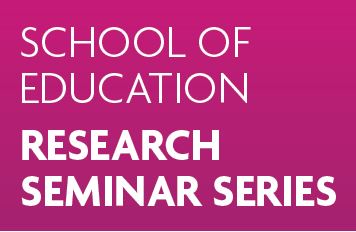This is a past event
The seminar presentation will provide details of the planned research and provide an opportunity for the questions and views of the audience to further inform the research strategy.
This research project aims to explore and generate theoretical propositions about how therapeutic use of self is understood and experienced in the context of contemporary acute in-patient mental health care by registered mental health nurses, and whether mindfulness can enhance or influence understandings of the nature of therapeutic use of self in this context.
Critical analysis of the two concepts, therapeutic use of self and mindfulness, will provide a background for empirical data gathering from practicing registered mental health nurses across Scotland. This will, using grounded theory methodology, explore their perceptions and experiences of therapeutic use of self in order to begin to build a theory that might inform mental health nursing and the achievement of therapeutic practice in future.
Acute in-patient mental health care is a core feature of mental health services in the UK. It is deemed a crucial service for people who are seriously ill, vulnerable and in need of urgent treatment (MIND 2011). There is a dearth of research evidence pertaining to this field of practice (Thorincroft and Tansella, 2013), particularly with respect to the role of the registered mental health nurse, long been considered to be the provider of therapeutic care and the creator of a therapeutic experience for users of acute in-patient mental health care. Evidence suggests that the therapeutic role is being compromised due to an emerging bias towards risk and containment focussed practice rather than therapeutic and recovery-focussed practice, which in turn is impacting of the experience of service users and also the nurse.
The core attribute of the registered mental health nurse is the ability to use ‘self’ therapeutically. The therapeutic use of self has been described as a conscious, planned and intentional endeavour that only occurs within the context of a professional, helping relationship, (Wosket, 2017, Baldwin, 2013; Freshwater, 2002). It is directed towards the achievement of ‘client’ goals such as reducing anxiety, personal growth and increasing self-awareness, empowerment and ownership of the work of positive change (Peplau, 1988; Knight, 2012; Holmquvist et al, 2013).
Mindfulness, in the Western secular context is generally described as a way of being that emphasises the ability to intentionally pay attention to present moment experience with a non-judgemental, kind and curious attitude, (Kabat-Zinn, 2015; The Mindfulness Initiative, 2015), with mindfulness practices being the associated training (Nairn, 2010). Mindfulness training at one level may allow a person to live with more clarity and present moment awareness. however, at a deeper level, it is suggested that mindfulness training promotes qualities such as self-awareness, insight, compassion, equanimity and acceptance (Nairn, Choden and Regan-Addis, 2019) and the ability to be conscientious and intentional in our actions, (Seigel, 2010).
These qualities, it can be argued, are reflective of the attributes inherent in the therapeutic use of self. Thus, mindfulness may provide a lens through which therapeutic use of self can be understood, developed and sustained in the complex setting of acute in-patient mental health care.
- Speaker
- Debbie Banks
- Venue
- MR266 MacRobert Building
- Contact

